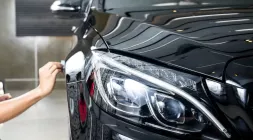Most possible reasons why your car vibrates
Car vibrations are one of the usual indicators of repair costs that could go over the roof.
Most times people can get so used to their vehicles that one small detail out of place becomes noticeable. We’re not just talking about the sudden appearances of scratches or a stain in the seat. Even the minor changes in performance can become noticeable to the driver. This is especially if he uses the vehicle on a daily basis.
These don’t always represent a problem but most of the time, they do. There are also times when signs and symptoms are impossible to miss. A good example if your car vibrates when it’s stopped or is idling. If you’ve noticed this in your car and chose to ignore it, you’re in for some trouble.
Changes like this in your vehicle can usually spell a problem. And car vibrations are one of the usual indicators of repair costs that could go over the roof. But what exactly could be causing this problem? What is there in your vehicle that makes it vibrate when stopped or at an idle? Find out everything you need to know in this article from Philcarnews.com.
Vibrating Car Diagnosis
Diagnosing a vehicle that vibrates when idling or stopped is a lot easier. That is if you compare it to a car that vibrates while accelerating. But regardless, it is still a problem. This is mainly because of the fact that only the engine is the moving part if the vehicle is at a stop. The good news here is that car owners with this problem can rest easy since the problem is purely engine related.
That means you won’t have to worry about inspecting the other parts of your vehicle. Since parts like the brakes and the transmission won’t be in motion while the vehicle is at a stop, the problem is not there. The downside is that the engine is probably the most complicated vehicle part there is.

Diagnosing a vehicle that vibrates when idling or stopped is a lot easier.
Common Reasons That Cause Your Vehicle to Vibrate
1. Dirty or Worn Out Spark Plugs
Defective spark plugs are a usual cause for a vibrating vehicle while stopped. Carbon deposit and dirt buildup can clog your spark plugs. This can prevent it from working properly so it doesn’t fire correctly and ignite fuel. This can lead to your engine misfiring. You can feel the engine misfires when the vehicle is stopped or idling. You can try and replace your spark plugs to see if it would solve the problem. If you haven’t changed your spark plugs for a long time, the more you should consider this solution.
But if you recently changed your spark plug, try to see if you’ve changed it with the right type. There are different types in the market. So, if you picked out the wrong one, you may have to deal with its effects. If you are not sure what the best spark plug for your car is, check your owner’s manual. It should have all the details about this matter.

Defective spark plugs are a usual cause for a vibrating vehicle while stopped.
2. Vacuum Hose is Disconnected
This is a common issue that’s overlooked a lot. The vacuum hoses in the engine could pop off your engine anytime while you’re driving. This can also be disconnected accidentally if you’re working on your vehicle and nudged it. If the vacuum hose comes loose, this can cause the engine to vibrate and even stall. If there is a tear or a crack in the hose, the same effect can also happen. If you think that’s the case, you can check using this simple procedure.
- Ready a mixture of soap and water.
- Put it in a spray bottle
- Spray the soapy water unto the vacuum hose.
- Let the engine run.
Small cracks are very hard to find. But if there is a crack, your soapy water is supposed to temporarily keep the leak sealed. The idle speed will then change to a noticeable extent.
>>> Related: Car Owners: Never Ignore Brakes and Tires
 The vacuum hoses in the engine could pop off your engine anytime while you’re driving.
The vacuum hoses in the engine could pop off your engine anytime while you’re driving.
3. Dirty Air Filter
If the engine’s air intake suffers interruptions, this can cause your engine to vibrate. As an effect, your vehicle may not be able to run optimally. In cases where the air filter is dirty, there isn’t enough air that reaches the combustion chamber. This means that there also not enough fuel injected.
The combination that’s reduced in amount will make your RPM drop below the vehicle’s normal idle range. This is usually somewhere at 700 RPM. The end result is a vibrating vehicle whenever it is idled. There are also cases where the RPM drops so low that the vehicle stalls. This will require the driver to restart the vehicle every time. The good news is that this cause can be solved at home. Air filters can be a DIY project even for the inexperienced. You can choose to replace your dirty air filter. You can also buy a reusable one that only requires cleaning.

In cases where the air filter is dirty, there isn’t enough air that reaches the combustion chamber.
4. Clogged or Dirty Fuel Injectors
This is another part of the vehicle that faces the possibility of being clogged. Over time, fuel injectors can actually get clogged with dirt. The usual elements that get caught in fuel injectors are varnish, dirt, and sediments. This can cause uneven fuel amounts to be delivered in each cycle. If this is the case, your vehicle will most likely shutter, vibrate and shake because the constant fuel flow as it enters the combustion chamber is roughly interrupted.
Clogged fuel injectors are usually solved by having them cleaned. But in very harsh cases, these should be replaced. Sometimes, the use of a fuel injector cleaner or good fuel system helps to clear up the problem. You can also try to clean up the throttle body. This controls how much air is mixed with fuel in the combustion chamber. There are dedicated throttle body cleaners that you can use for this very purpose.
>>> Related: 5 telltale signs indicating the need to replace the damper

Clogged fuel injectors are usually solved by having them cleaned.
5. Cracked or Torn Timing Belt
A serpentine belt of a timing belt that’s stretched, torn, or cracked can cause a vehicle to vibrate when at an idle. This could be a sign that your timing belt needs a replacement soon. In this case, it’s best to change it if there are signs of damage. Then, refer to your manual as to the correct serpentine belt replacement intervals.
RECENT ARTICLES








